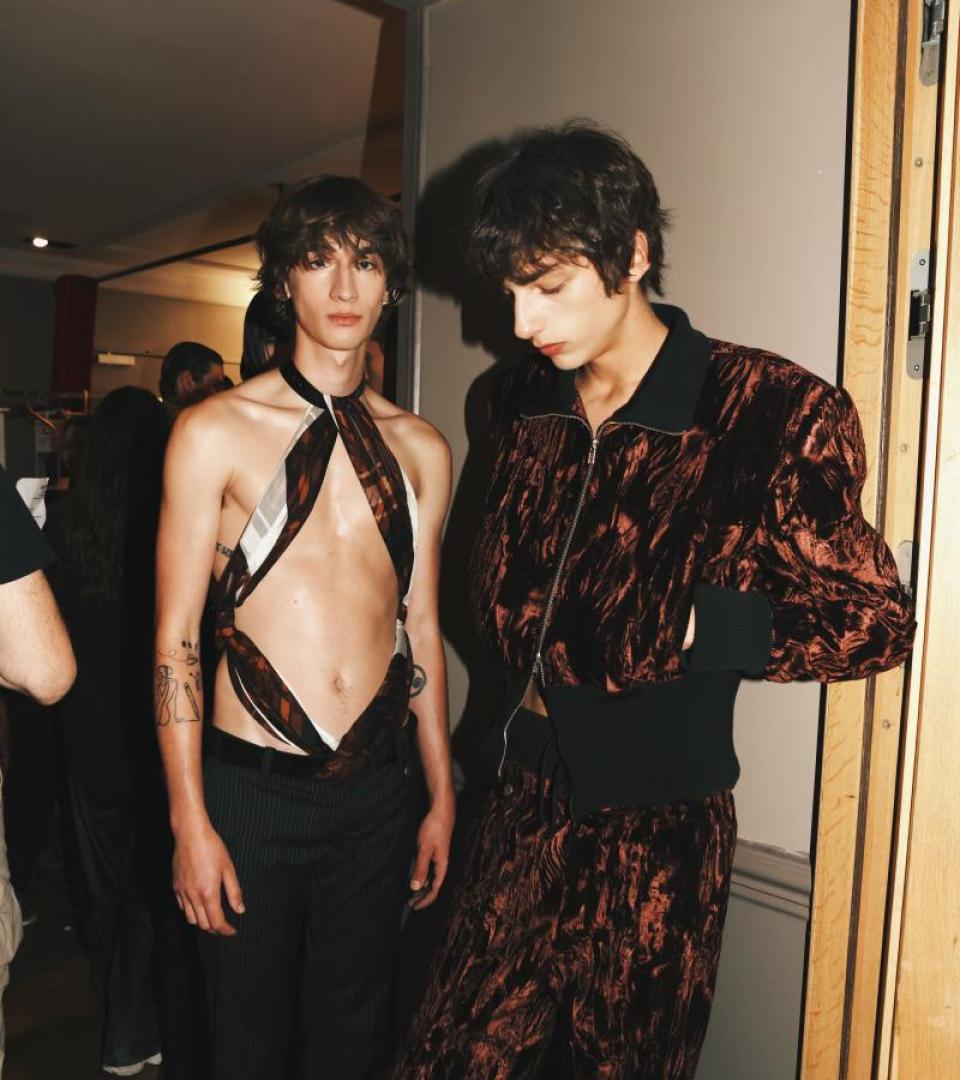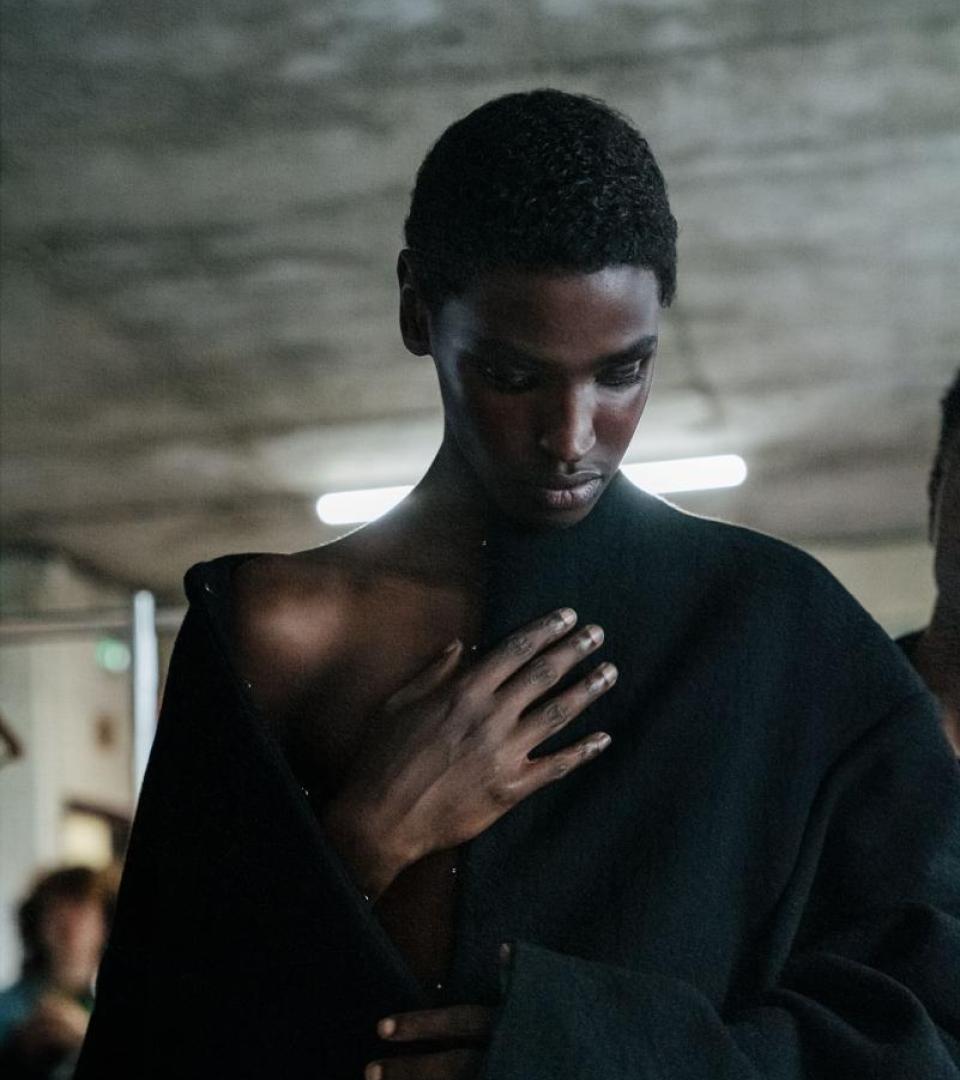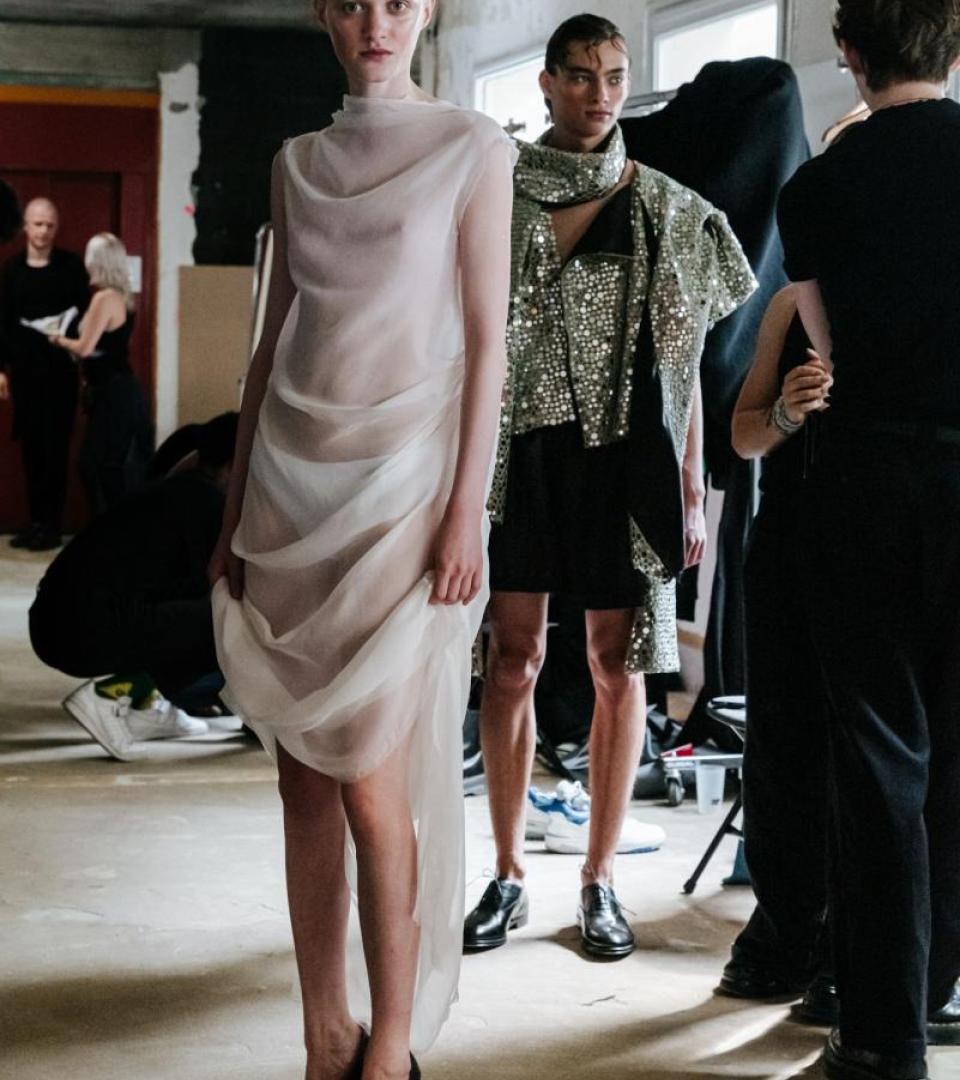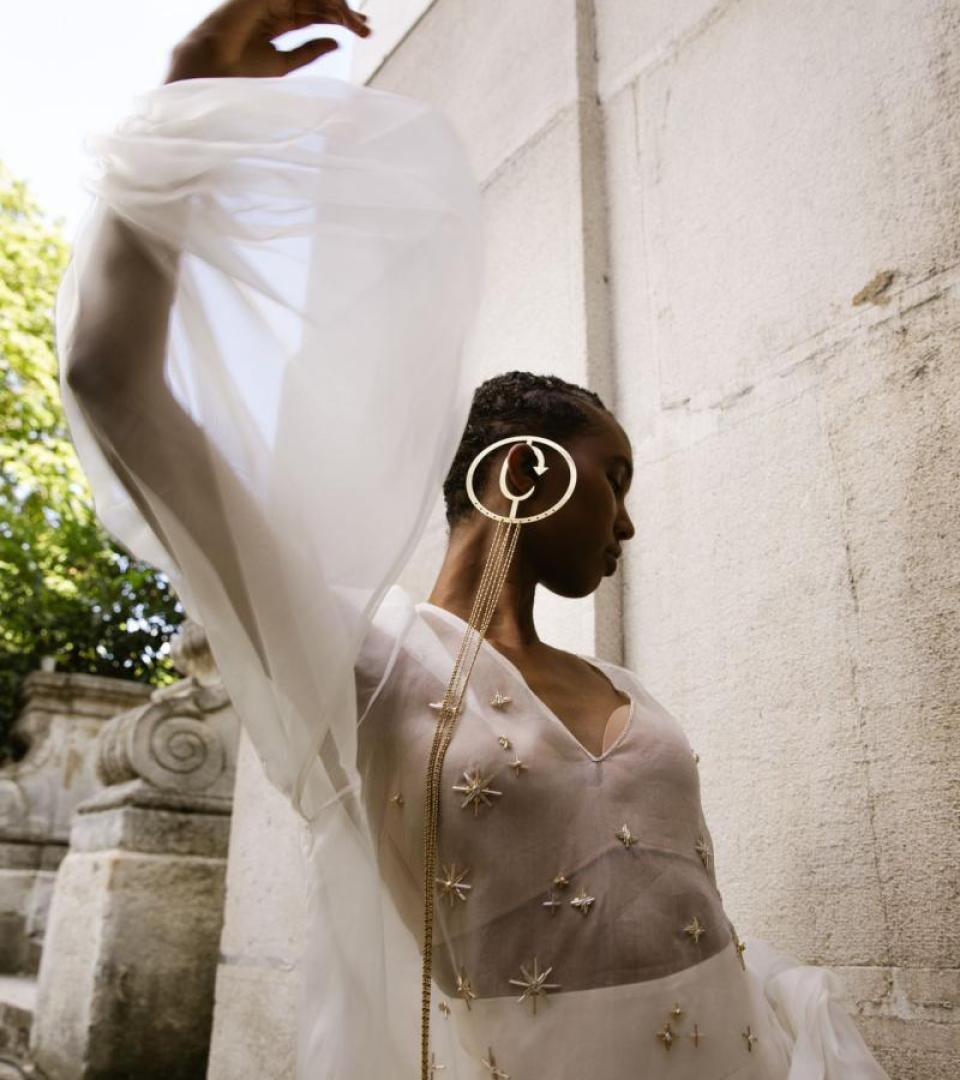Rami Al Ali
By Paul McLauchlan
For Rami Al Ali, this is not just a haute couture collection: this is a love letter to Syria. As he makes his debut for Fall-Winter 2025, he becomes the first Syrian designer on the Haute Couture Week calendar. Entitled ‘Guardians of Light,’ the Dubai-based designer illuminated Syrian craft traditions at a time when parts of the resilient country are rebuilding from the ground up. He listed off jewels of Damascus architecture as inspirations. From the decadent painted wood panels of Al Azem Palace to the graphic tiles at the mosque, Jami Al Darwishiyya, and the architectural decadence of Khan As’ad Pasha to decorative private homes constructed during the Ottoman Empire, he arrived at something gracefully ornate.
Through the conduit of sculptural silhouettes, hand-embroidered brocades, and marquetry-inspired beadwork, Ali reflected on his heritage in looks that take upwards of 100 hours to complete. There is Aghabani, a type of thread work on cotton. There is Ajami, a traditional technique of painting natural pigments on wood and mother-of-pearl inlay with woodwork. Elsewhere in the collection, embroideries depict Syrian flowers, like a vivid orange bloom typically found in Damascene ceramics to symbolise wealth and prosperity, and a lattice of handmade silk crepe ropes, that creates patterns that play on Aghabani embroidery. Other looks represented Ottoman-inspired tile work through filigrees of thread and sequins.
“Each piece is a light carried forward. A memory made wearable. A heritage kept alive, stitch by stitch,” according to the Rami Al Ali show notes.
What would you like us to know about the new collection?
This collection is an emotional continuation of my ongoing dialogue between memory and modernity. I’ve drawn from fragments of heritage – ornamental, architectural, and poetic – and reinterpreted them through a more abstract lens. It’s not just about visual beauty, but about evoking a certain feeling. Each piece is meant to carry a sense of quiet strength, a whisper of the past elevated by today’s savoir-faire.
How essential is heritage and/or a distinctive identity in contributing to a brand’s success?
Heritage is the soul of a brand. Without it, you may have style, but you lack depth. For me, a distinctive identity is not just about aesthetics, but about perspective – how you see the world and translate that into your craft. In today’s saturated market, authenticity rooted in heritage is what creates emotional connection. It’s what turns a garment into a story.
What surprises you about the fashion industry in 2025?
Perhaps what surprises me most is the duality. On one side, we’re more digitized, data-driven, and fast-paced than ever. On the other, there’s a profound longing for intimacy, meaning, and craftsmanship. It's surprising—and encouraging—to see that in the midst of all the noise, people still crave the silence that only true artistry can bring.
What significance does Haute Couture have in 2025?
In a world that often feels disposable, Haute Couture stands as a symbol of permanence. It reminds us that beauty takes time; that hands still matter; and that creativity, when not bound by commercial constraints, can be transcendent. Couture today is not just about fashion; it’s a form of resistance to uniformity.
How does it feel to be the first Syrian designer to join the Haute Couture Week calendar?
It’s deeply humbling. This moment is larger than me; it’s a tribute to every Syrian artisan, storyteller, and dreamer who continues to create despite adversity. I carry their spirit with me on that calendar. To see the name of my country engraved in the world of Haute Couture is not only a personal milestone, but a cultural one.
How do you think your brand can spark or sustain desire with so much else going on in the world?
We live in a world of constant distraction, yet I believe desire is born in the details. My brand speaks to those who appreciate intention, quiet luxury, and emotional resonance. When you create with purpose, you don’t need to shout to be heard. There’s a place for stillness and subtlety; and that, in itself, becomes desirable.
Can you share a mantra that you like to live by?
“Success is a form of resistance.” To me, this means that every step forward – especially when you're coming from a place that’s underrepresented or misunderstood – is an act of quiet defiance. Choosing excellence, elegance, and perseverance in the face of doubt or difficulty is how I resist. It’s not about making noise; it’s about making an impact.
This interview has been lightly edited.



